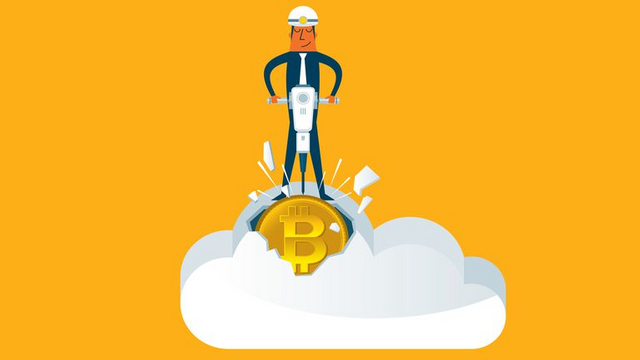Latest news about Bitcoin and all cryptocurrencies. Your daily crypto news habit.
Low Prices Can Cause Redistribution of The Hash Rate
The vast portion of mining power is sourced from China.
The recent slump in coin prices has led to concerns over the feasibility of mining operations. However, mining operations are still profitable in some parts of the world; the lower Bitcoin price is making way for diversification in the mining industry by enabling the growth of farms in countries with electricity prices that are lower than the energy costs in China.
While a few Chinese mining facilities have been able to lock direct deals with power providers, thereby giving them access to discounted energy supplies, the average kWh rate in China stands at $0.08. Bitcoin’s current difficulty makes it difficult for most major miners, including those in China, to break-even on operating costs.
Bitcoin network’s hash rate has subsided by a considerable amount as it is hovering between 30,000–40,000 TH/s, which is a steep fall from its August highs which were north of 60,000 TH/s.
Opportunity for Newer, Better Services
Only a few months ago, BTC prices allowed a handful of mining facilities to control a vast portion of the network’s hash rate. Even if competing mining pools offered lower fees and better returns, the established mining pools out-marketed new entrants; moreover, the established pools had the cash flow to constantly grow their hash rate, thereby intimidating new entrants.
Now, hash rate isn’t rising; it’s depreciating. The market leaders not only lack the funds to pursue expensive marketing campaigns, but they also no longer add new hardware to facilities.
Given that the market leaders are no longer growing the size of their mining farms, new market participants are confidently entering the market, knowing that their share of the hash rate won’t fall any time soon. Now, new mining farms that are launching operations in countries with low electricity costsare able to easily take on the goliaths of the mining industry.
Newer mining farms are pursuing disruptive business models as they intend to drive profits by taking advantage of low energy fees rather than by charging large fees to pool participants. Cryptonoras, a relatively new mining operation, aims to lead the shift to a more globalized presence in mining farms. The mine is located in Norway, enabling its users to benefit from a unique set of benefits.
The Status Quo of the Mining Industry
Established mining pools have enjoyed the benefit of limited competition. This has allowed them to charge high fees or consume a hefty percent of the mine’s block rewards; some have even retained all the transaction fees that have been gained from block rewards.
AntPool: One of the most well-known mining facilities in the blockchain space, AntPool has long asserted its dominance over the market by rallying rig after rig to keep competition at bay. This gave them the ability to not only keep 2.5% of block rewards, but also keep transaction fees.
BTC.com: This mining pool tussles with AntPool by not charging a 2.5% on block rewards. However, its other fees, adding up to 4%, are even more than what AntPool takes.
F2Pool: F2Pool, a play on the words free-to-play (F2P), has mined a large portion of all mined blocks. However, being a part of this pool is far from free as it claims 3% of block rewards and still keeps transaction fees.
The above three mining facilities provide well-known mining pool services. However, their market dominance has allowed them to claim a large portion of users’ block rewards. The recent slump in hash rate has allowed new participants, like Cryptonoroas, to offer cloud mining services at terms that were inaccessible in the past.
Additionally, despite the fact that these facilities control a large market share, AntPool and F2Pool have neglected users’ returns in more ways than one.
One event that serves as a testament to this is that these farms’ operations on Bitcoin Core 0.9.5 caused them to miss out of tens of thousands of dollars during the fork that took place on July 4, 2015. Those funds were the due gains of not the farm, but their users; negligence on behalf of the pools led to a loss to pools’ users.
Time for Change
New market participants, like Cryptonoras, are keen to boost their service quality to acquire increased market share. Thus, they keep their mining operations up-to-date with the most recent Bitcoin Core updates.
More importantly, they’re ensuring the hash rate is not concentrated in just one country. This allows them to focus on opportunities available across the globe. For example, Cryptonoras, takes advantage of the incredibly low energy costs in Norway. While energy costs are at $0.08 kWh in most regions in China, Norway’s low energy costs, $0.04 kWh, gives miners the opportunity to gain incredibly low operating costs.
In Cryptonoras’s case, operations remain profitable even if the current low Bitcoin price, forces some large, established miners to barely break-even.
Additionally, while the Chinese government has a not-so-positive stand against cryptocurrencies and Crypto-related operations, some other governments have recognized the benefits of cryptocurrencies and blockchain technology. Scandinavian and North European governments are leading the way in the positive approach. This allows mining facilities there, like Cryptonoras, to gain access to insurance services. Thus, the assets mined by farms like Cryptonoras will be insured, giving users increased peace of mind.
On a valuable note, the decentralization and increased spread of mining rate has accompanied another benefit. Mining services like Cryptonoras only charge an initial contract fee; after that, there are no cuts in users’ block rewards or transaction fee earnings.
Low prices cause redistribution of hash rate. was originally published in Hacker Noon on Medium, where people are continuing the conversation by highlighting and responding to this story.
Disclaimer
The views and opinions expressed in this article are solely those of the authors and do not reflect the views of Bitcoin Insider. Every investment and trading move involves risk - this is especially true for cryptocurrencies given their volatility. We strongly advise our readers to conduct their own research when making a decision.



